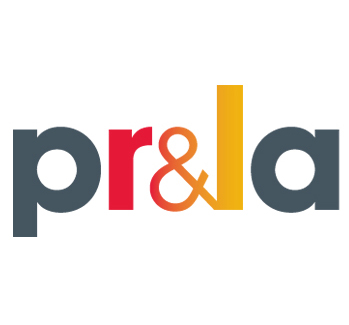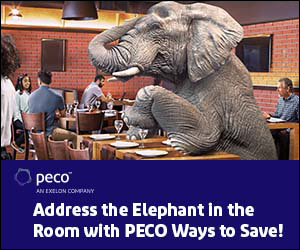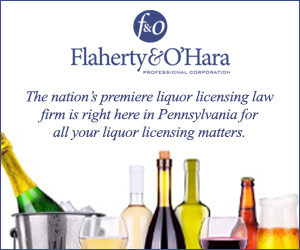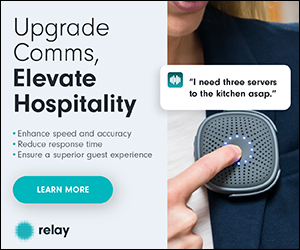State Items
Budget update
After dragging on for almost four extra months, the remaining pieces to balance the $2 billion deficit were sent to the Governor, and included a gaming bill which is expected to bring in $150 million in its first year. The rest of the budget is balanced based on expanding the sales tax to online marketplace sales, taking about $600 million in unused funds from reserved accounts and borrowing $1.25 billion against the tobacco settlement fund. Since the budget, for right now, is balanced, the Governor has halted his efforts to borrow $1 billion against the Pennsylvania Liquor Control Board (PLCB) and sell the Farm Show Complex.
Speaking of the gaming bill
Video gaming terminals were included in the legislation, but only for truck stops. The legislation contains some of the following additional provisions:
MINI-CASINOS The Category 1 and 2 casinos can offer sealed bids for these new Category 4 licenses. Each casino is limited to one mini-casino. A casino must put up a minimum bid of $7.5 million. These casinos can have between 300 to 750 slot machines and 30 table games initially. A Category 4 casino can’t be within 25 miles from a separately owned casino, but can be within 25 miles of the winning bidder’s casino.
TRUCK STOP VGTs A truck stop can have up to five VGTs. An eligible truck stop must have sold 50,000 gallons of diesel fuel in the previous year, have a convenience store, have at least 20 parking spaces and sit on at least three acres.
GAMING The bill levies a two-tier tax rate for internet gambling—52 percent for less skilled slots type games and 14 percent for more skilled games such as poker where players interact.
Hotel tax threat
Thanks to the incredible efforts of our members, PRLA was successfully able to defeat a proposal that would have assessed a 5 percent statewide hotel tax to balance the budget. While this was an incredible win in a battle we didn’t believe we should have ever had to fight, we are moving forward with the momentum from this to pursue other tourism priorities as we go into 2018.
What are tourism’s priorities?
Stay tuned to your email, as we will be setting up delegation meetings with PRLA members and legislators in the district. We believe it is important for legislators to see and understand that tourism is in every county in Pennsylvania and these roundtable discussions will emphasize the impact tourism has on our restaurant, lodging, attraction, and DMO members. While we’ll cover all PRLA’s legislative priorities at these meetings, we will be a focusing on statewide tourism funding, requiring online home sharing websites to register and remit taxes, and requiring online travel companies to remit taxes on the full cost of the hotel rooms they sell.
Alcohol legislation
While the House has sent numerous bills over to the Senate, not a single House bill has been considered in the full Senate. PRLA will be refocusing our efforts over the coming month to educate legislators about the issues with the new special liquor order (SLO) process, the need for licensees to be able to discount to-go products, and to ensure our interests are protected as the House and Senate potentially consider bills in the new year.
Why is 2018 an important year?
2018 is a key election year in Pennsylvania politics. Not only are all 203 members of the Pennsylvania House and 25 members of the PA Senate up for reelection, but the Governor’s race will be key in determining the future of some of our legislative priorities. Gov. Tom Wolf will run unopposed in the primary election and, so far, four candidates have announced that they are running in the Republican primary—Senator Scott Wagner (York), Allegheny County businessman Paul Mango, Allegheny County lawyer Laura Ellsworth and Speaker of the House Mike Turzai (Allegheny).
What can you do to help our efforts in 2018?
It is crucial that we support those legislators who supported us as they run for reelection, especially those that were our champions in the hotel tax fight. 2018 is a new fundraising year for our PAC so please send in your personal PAC donation today so we can start investing in these campaigns. If you are able, please consider the $365 Club. A $1-per-day investment is small compared to what the cost of increased taxes and regulations will cost your business.
Federal Items
Overtime regulations
More than 140,000 comments were submitted to the Department of Labor in response to a request for information as it pertains to developing new overtime regulations. While the DOL will work through those comments to develop their regulations, Secretary Acosta has hinted that $33,000 may be a reasonable new threshold for salaried employees.
Tax reform
By the time you read this article, the Trump Administration may have achieved its first (of several) campaign promises—tax reform.
Joint employer passed the House
The U.S. House passed HR 3441 by a vote of 242-181. The legislation reestablishes the former definition of joint employer to clarify that you are only an employer if you have “actual, direct, and immediate control” of the employee. The Senate is expected to consider its own version of the legislation shortly.
Menu labeling
The Food and Drug Administration has released new guidelines for menu labeling. The effective date for the new regulations is still expected to be May 7, 2018.
Local Issues
Pittsburgh paid leave
PRLA filed a petition urging the Supreme Court to not take up the appeal filed by the City of Pittsburgh as it pertains to mandated paid leave in the City. There is no set timeline for when the Supreme Court will make a decision. As always, unless the Supreme Court rules otherwise, mandated paid leave in Pittsburgh remains illegal.
Philadelphia—beverage tax
Beverage tax revenues for continue to fall short of estimates. PRLA continues to work with coalition members to ensure City Council understands the negative impacts of the tax.
Philadelphia—Sodium warning label
Philadelphia is considering legislation that would require chain restaurants to put a “sodium warning label” next to any menu items that alone, or in combination with something else, could exceed 2,300 mg of sodium. PRLA believes that the full nutritional information of items on a menu is much more telling than just sodium. For example, many types of fish are naturally high in sodium which could put a label on what is a low calorie, generally healthy, option, which would lead to confusion and not achieving the overall goal of helping people to make smart nutritional choices.
Allegheny County—Pool regulations
The Allegheny County Health Department is in the process of updating the county’s current pool regulations. They are considering requiring lifeguards at pools that are deeper than 6 feet, in addition to requiring lifeguards if a hotel has a fitness program that they allow the general public to use. PRLA is working closely with the Greater Pittsburgh Hotel Association (GPHA) in providing feedback to the department on these regulations.
Philadelphia—stop and go establishments
Philadelphia City Council is considering legislation to accompany a state law that would crack down on stop and go establishments in the City. PRLA is working closely with council to ensure that the language they draft goes after those who are breaking the law or not operating in good faith and not legal and responsibly operated restaurants. •












